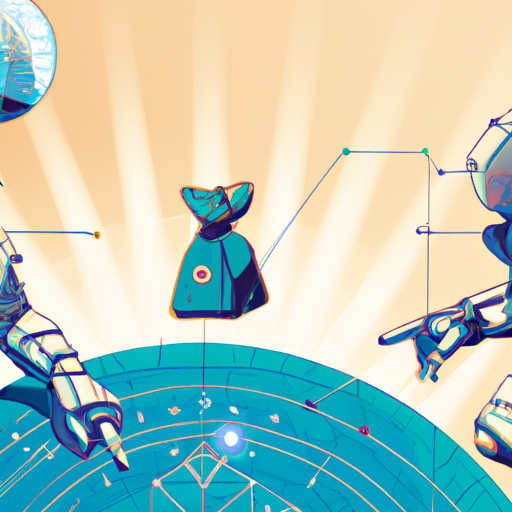I’ve been involved in the investment business for over 30 years. When I started, it was unusual for brokers and financial advisors to have a computer at their desk. We would look up three-month-old research from Value Line, which came in a three-ring binder.
Times have changed since then.
The investment industry was an early adopter of AI and automated trading. It is a very quantitatively driven business. The first robo-advisors arrived around 2010. Today, the five largest mutual funds investing in stocks ALL run algorithmically based index strategies.
In the early 2000s, the biggest bank in Delaware had 30 stock analysts. This was the job that I wanted as a college graduate. Now, it doesn’t exist.
What happens when computers start running the show? Here are a few observations.
1. It is better to anticipate change than respond to it.
By the time you’ve found out about something on CNBC, prices have already adjusted to the news.
Markets are moving faster than ever. Take the recent failure of Silicon Valley Bank, which went from “stable” to “failure” in the course of just two days.
My friend Peter Atwater writes the Financial Insyghts newsletter and has an interesting take on this. He notes that there is “a serious ‘pace gap’ between policymakers and the crowd. Policymakers are moving like it is 2008, while the crowd is moving in what might best be called ‘Twitter Time.’ And the latter feels like it is 100 times faster than the former.”
2. AI thinks quickly, but not deeply.
Generative language models look and act smart, but they can also commit egregious errors with great confidence. (Who was the president of the United States in 1593? Queen Elizabeth, of course!)
AI bots tend to over-respond to headlines. They sell first and ask questions later (if ever). This adds to market volatility.
3. Everything correlates.
All markets are connected. They move in sync, making diversification less useful, and timing more important. Investing becomes a simple binary decision: Risk on or risk off.
4. Stock picking is less important.
Getting the right industry exposure is key. Much of the trading now is in exchange-traded funds (ETFs). These are baskets of stocks that are pooled together for trading purposes.
Stocks regularly trade down on bad news relating to their competitors. I call this “secondhand smoke.”
###
All of this is already happening. So, what happens next?
- The winners of the AI wars will have a computational advantage based on the depth and accuracy of their data sets. In my experiments with AI, the answer to creating better models is usually “add more data.” The owners of the biggest datasets will be hard to beat. These include Microsoft, Amazon, Facebook and Baidu.
- Change is accelerating. Futurist Alvin Toffler referred to this as “transitive thrust,” with the end result being “future shock.” ChatGPT can now write software code and legal agreements with 90% accuracy. It’s not perfect, but it is a amazing start. An AI that can improve and edit its own code could very well be the first stage of technological singularity.
- We’ll spend more time chatting with AIs. Want to talk with your appliances? Amazon’s Alexa already has a conversational mode that can emulate an awkward first date experience.
- AIs will become gatekeepers. As AIs produce mass content, we’ll need more AIs to keep us from getting overwhelmed. Just as secretaries in the days of “Mad Men” would field phone calls from insurance salesmen, AI assistants will likely screen out which messages or promotions deserve your attention.
AIs are like a fiercely smart coworker that gets the details right, but doesn’t always see the big picture. There is no software yet for common sense.
Join the conversation!
Find news, events, jobs and people who share your interests on Technical.ly's open community Slack

Delaware daily roundup: DE in DC for 'Communities in Action'; diversifying the coffee supply chain; Invista's future

Delaware daily roundup: Where to cowork in 2024; Intertrust Group rebrands; the Visitor Bureau's new website

Philly daily roundup: A better coffee supply chain; Philly Tech Week returns; Apply to Pennovation Accelerator


